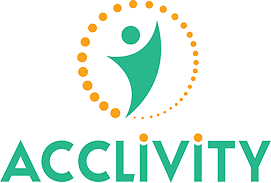In the age of technology, on-ground teaching is not quite as effective in post secondary education as it used to be.
In fact, there was a meta-analysis and review that concentrated on online learning in grades kindergarten through twelfth and higher education over the course of twelve years from 1996-2008 released by the U.S. Department of Education in 2010 that showed students performed better, on average, in an online education environment than in the traditional classroom setting.
Conversely, it also revealed that hybrid teaching (where students do both face to face learning and online learning) was more advantageous to students than solely online teaching.
There are many possible reasons for this. In a hybrid teaching environment, teachers tend to collaborate more with students. In the classroom, teachers are responsible for delivering the material to students.
However, when students transition to the online format, there’s much more collaborative learning. Teachers can give a group assignment or create a discussion post prompt that gets students actively involved.
Plus, the online format creates a level playing field where shy students are more likely to speak up and participate due to the anonymity of the online environment.
The Age of Remote Teaching in Higher Education
While online teaching and learning has become quite popular, be it completely online or hybrid type courses, no one was thoroughly prepared to transition to remote teaching in post secondary education. However, due to a global pandemic, such a transition was forced.
More than ever we’re seeing the challenges of remote educating. There are institutions issuing mandates for how to appear professional during remote educating hours.
Additionally, we’re seeing faculty members take on larger work loads and larger class sizes making effectively educating students that much harder.
Throughout the pandemic, educators have done their best to transition their courses into a format deliverable in a remote learning setting and adjusting their policies to fit the current climate, mostly without pay.
This has left many educators to wonder about career advancement in higher education and the raises that go along with it.
Career Advancement in Higher Education
If it were just about hard work and taking on more work, every educator out there would be receiving a promotion right about now. Unfortunately, it’s not quite that simple. However, that doesn’t mean you have to stay stuck or left wondering how to advance your career in academia.
While that hard work is definitely necessary for career development and advancement in a post-secondary institution, it can go unnoticed if you don’t make yourself a priority and get those achievements organized and into your promotion portfolio.
Another thing that can help you with career advancement is career advancement coaching. This is where we discuss your career goals and develop a plan and timeline that can help achieve the promotion and advancement.
Career coaching is also vital in recognizing your strengths and abilities and using those to your advantage. Plus, it can help you learn to correct any behaviors that are potentially standing in the way of succeeding.
Moreover, we can even review and critique your curriculum vitae (CV) and adapt it to assist you in achieving advancement and promotion in academia.
If you’re feeling stuck, wondering how to advance your career or looking to achieve a promotion, click here to book your initial complimentary consultation with Dr. Loren M. Hill.
Dr. Loren M. Hill knows the arduous promotion process within academic institutions because she’s been on both sides of the playing field. She specializes in coaching professionals through the promotion process of academia. Let’s get you on the road to advancement by booking your free consultation today!

